Speaking at the ceremony to celebrate the 80th anniversary of the Post and Telecommunications sector, the 66th anniversary of the Science and Technology sector and the 1st Patriotic Emulation Congress, Minister of Science and Technology Nguyen Manh Hung emphasized:
"Over the past eight decades, the telecommunications and science and technology sectors have not only contributed to building the foundation of an independent and self-reliant country, but also sowed the seeds of knowledge and the spirit of continuous innovation for future generations."
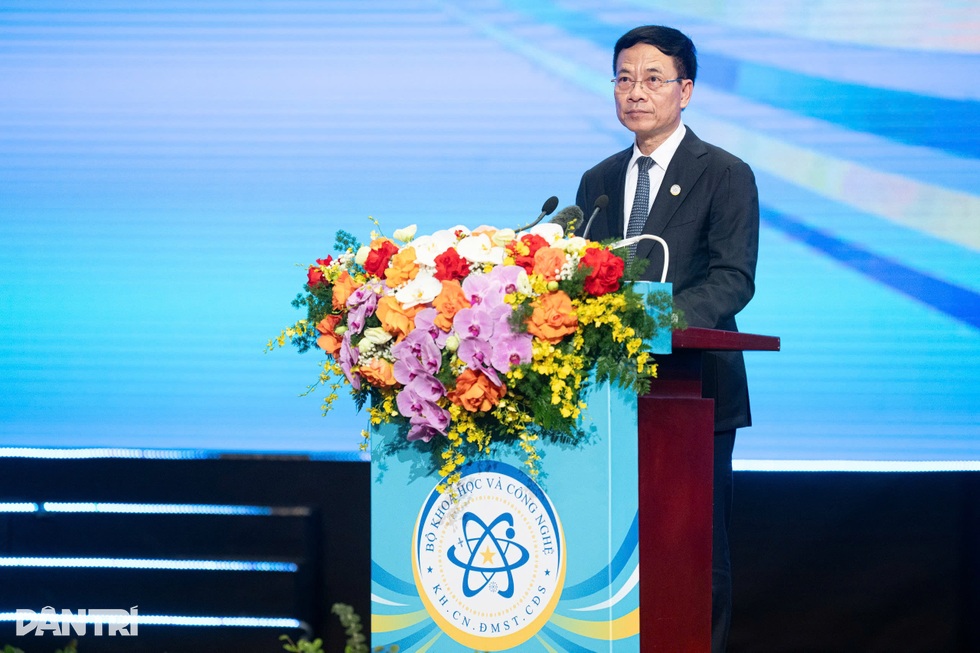
Minister of Science and Technology Nguyen Manh Hung speaks at the event (Photo: Manh Quan).
Minister Hung also reviewed the historical stages of the telecommunications and science and technology sectors.
Period 1945-1954: Resistance and nation building
During the early stages of the resistance war, a specialized Communications Committee was established in Tan Trao, ensuring communication throughout the campaigns.
The courier and Morse code became the lifeblood connecting the front line and the rear.
"In the Dien Bien Phu Campaign, nearly 1,200km of wire lines were built, contributing significantly to the victory.
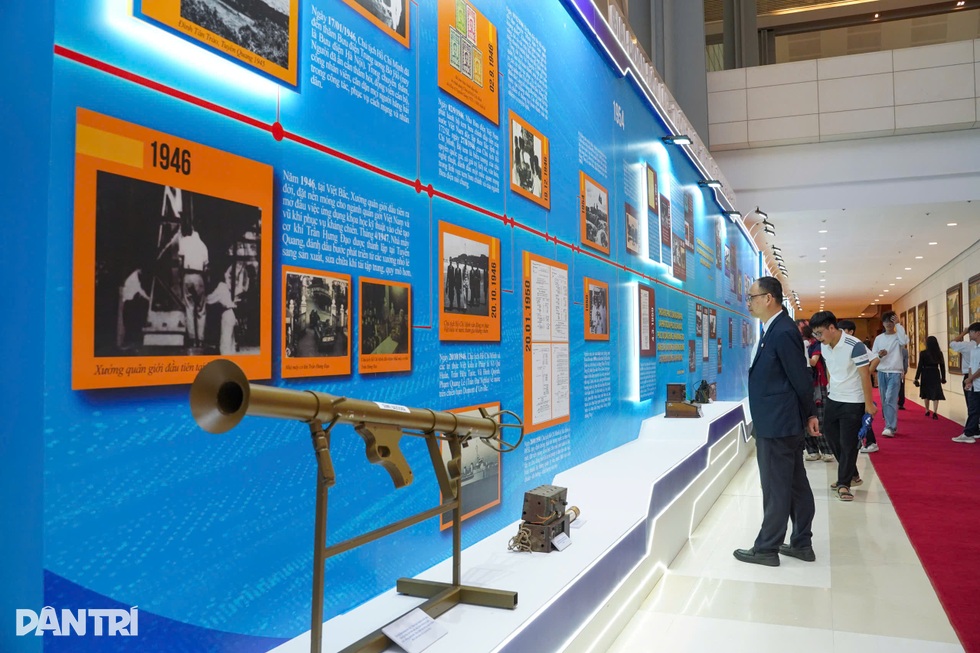
The science and technology and telecommunications sector has many contributions to the country's development (Photo: Minh Nhat).
Also during this period, Professor Tran Dai Nghia manufactured Bazooka and SKZ guns; Professor Dang Van Ngu produced Penicillin in deprived conditions, saving the lives of tens of thousands of wounded soldiers," Minister Hung shared.
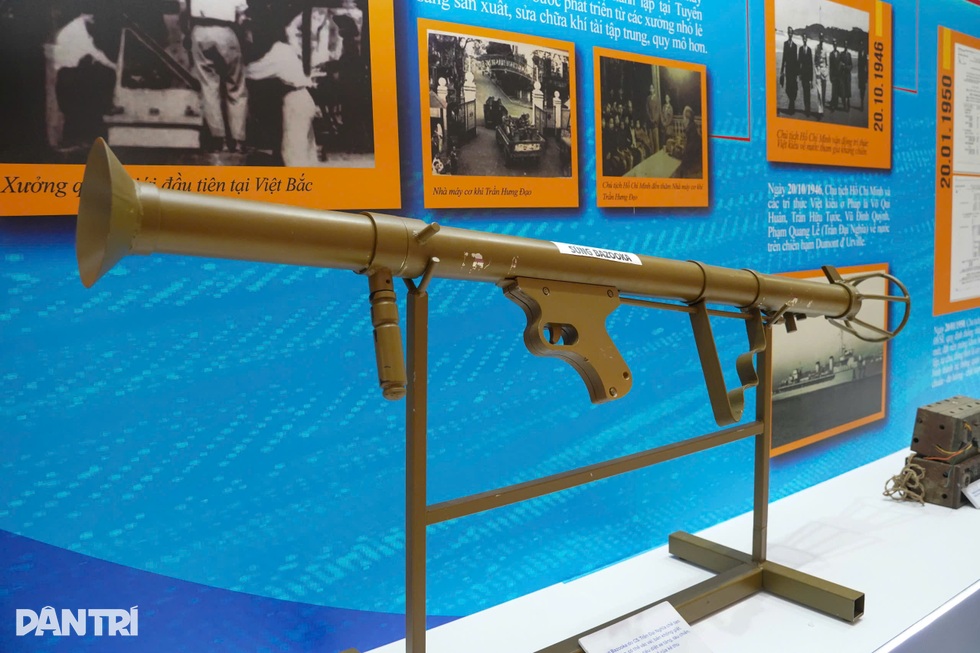
Bazooka gun created by Professor Tran Dai Nghia (Photo: Minh Nhat).
Period 1954-1975: Liberating the South, unifying the country and building socialism in the North
In 1959, the establishment of the State Science Commission paved the way for science to become an important weapon of resistance and construction.
In the sky, engineers improved the SAM-2 missile into the “Thang Long Fire Dragon”, contributing to the victory in the “Dien Bien Phu in the air” battle. Underwater, the GK1 special task force successfully handled magnetic mines, ensuring the vital transportation route to support the South.
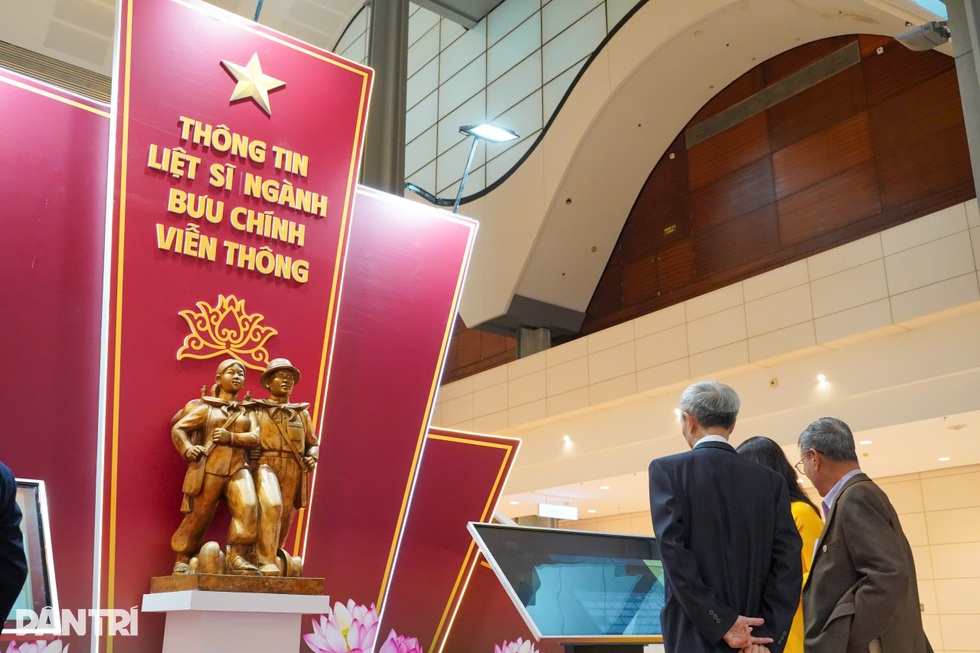
Among non-military sectors, the Military and Science and Technology sectors had the largest number of officers and soldiers sacrificed in the resistance wars against France and the US (Photo: Minh Nhat).
In the fields, Professor Bui Huy Dap's IR8 rice variety helps increase productivity and strengthen the food supply.
These achievements demonstrate courage and creativity in the face of hardship, laying the foundation for future development of science and technology.
"30 years of war to protect independence and unify the country were 30 years of postmen "crossing streams and forests", information soldiers "going ahead to pave the way", and scientists "turning poverty into creativity".
Some people have given their youth to the Fatherland, some have remained forever in the deep forests and fierce waves. More than 10,000 officers and soldiers of the Military Industry and Science and Technology have heroically sacrificed their lives.
They lived and fought for the ideal "Nothing is more precious than independence and freedom", wrote an immortal epic with their blood, maintained the bloodline of information and lit the fire of knowledge for the nation to survive and reach the day of total victory", the Minister of Science and Technology emotionally shared.
Period 1975-1986: Pre-Renovation
"In the spring of 1975, the country was filled with joy as the country was reunited. However, after the day of total victory, the war left widespread wounds.
"Postal, telecommunications, and science and technology infrastructure was severely damaged, power lines were broken, and many post offices were left in ashes. Research institutes were running out of facilities, and scientific staff were in deficit after years of war," Minister Hung shared.
In that context, the whole industry has embarked on the task of restoring and recycling the country. With the spirit of turning the impossible into possible.
Immediately after the reunification, the Postal Service built a North-South microwave line, ensuring smooth communication and connecting the country. The Hoa Sen I satellite ground station came into operation, marking the first step in opening up communication with the world.
Science and technology have made many important strides: Hero Pham Tuan became the first Vietnamese to fly into space; the Da Lat nuclear reactor was restarted, paving the way for research on atomic energy and nuclear medicine; scientists completed a system of maps of geology, minerals, and land resources, serving the country's development planning.
This is the stage of accumulating foundations, preparing both infrastructure and thinking, leaving great lessons about vision and aspiration for future generations.
Period 1986-2025: Innovation and Integration
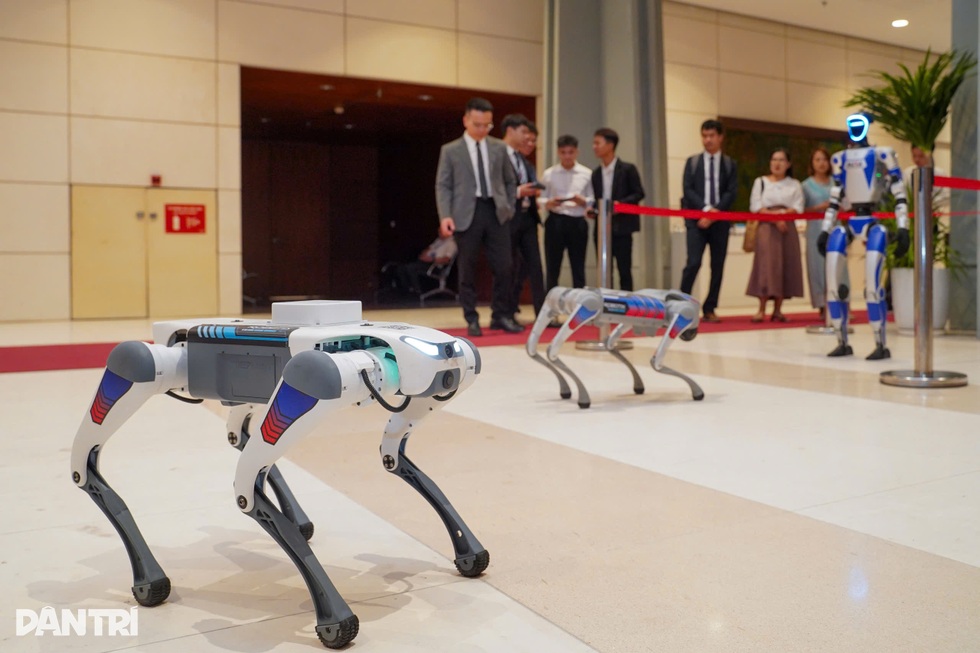
"Make in Vietnam" robot products (Photo: Minh Nhat).
In the context of the country still being embargoed, the "shortcut" decision of Labor Hero Dang Van Than opened the digital revolution, broke the siege and built a modern infrastructure. In 1997, the Internet officially entered Vietnam, opening the door to connecting global knowledge.
Since then, many important milestones have been established: launching VINASAT-1 and VINASAT-2 satellites, affirming sovereignty in space; mastering 5G technology "Make in Vietnam"; transforming agriculture from a food shortage to one of the rice exporting powers; successfully constructing century-old projects such as the 500kV North-South power line, Hoa Binh, Son La, Lai Chau hydropower plants, ensuring national energy security.

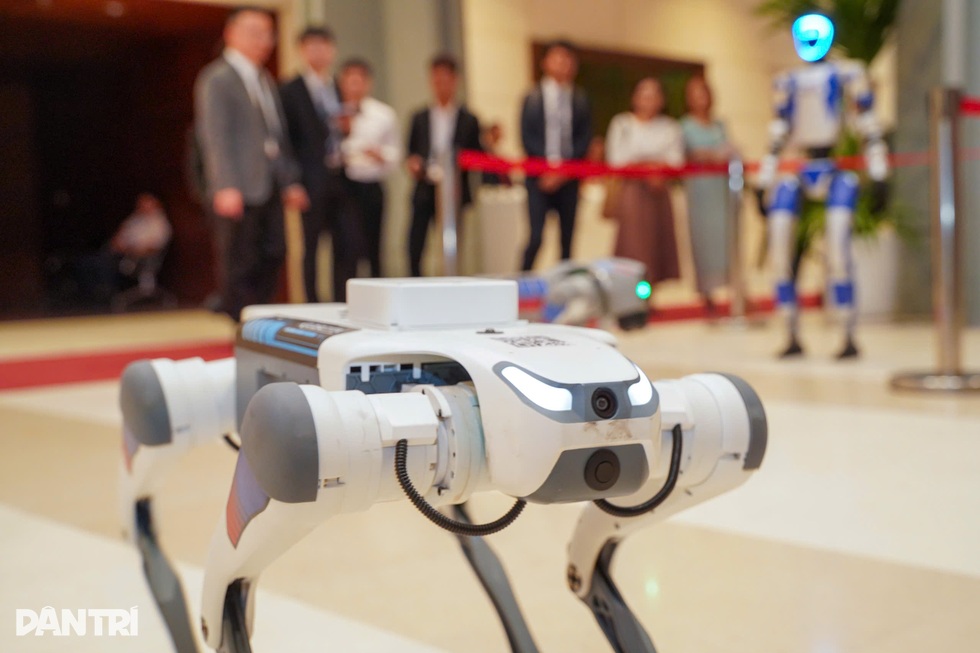
New Era
On March 1, the merged Ministry of Science and Technology officially came into operation. In just the first four months of the year, the Ministry of Science and Technology presided over the drafting and submission of five laws to the National Assembly for approval at the 9th session of the 15th National Assembly.
In the work of perfecting institutions, the Ministry thoroughly grasps and develops documents to ensure the principle of eliminating the mindset of "if you can't manage, then ban"; proactively shifting from "managing practices" to "managing targets"; from pre-inspection to post-inspection; from strict management to avoid risks to accepting controlled risks...
Currently, the Ministry is completing amendments and supplements to 3 laws and drafting 2 new laws to submit to the 15th National Assembly for consideration and approval at the 10th session, creating a legal corridor to meet the requirements of national development in the new period.
"80 years - a long enough historical journey for hardships to become character, for sacrifices to become bravery, for achievements to become pride. That is 80 years of "going ahead to pave the way", 80 years of serving the country, 80 years of accompanying the nation", Minister Hung emphasized.
Within the framework of the ceremony, the Ministry of Science and Technology received the First Class Labor Medal awarded by the Party and State, and Minister Nguyen Manh Hung received the First Class Fatherland Protection Medal, recognizing the great contributions of collectives and individuals in the cause of developing science and technology and post and telecommunications.
Source: https://dantri.com.vn/khoa-hoc/8-thap-ky-buu-chinh-vien-thong-khoa-hoc-va-cong-nghe-phung-su-dat-nuoc-20250929182446824.htm



![[Photo] Keep your warehouse safe in all situations](https://vphoto.vietnam.vn/thumb/1200x675/vietnam/resource/IMAGE/2025/10/1/3eb4eceafe68497989865e7faa4e4d0e)

![[Photo] Hanoi morning of October 1: Prolonged flooding, people wade to work](https://vphoto.vietnam.vn/thumb/1200x675/vietnam/resource/IMAGE/2025/10/1/189be28938e3493fa26b2938efa2059e)
![[Photo] President of the Cuban National Assembly visits President Ho Chi Minh's Mausoleum](https://vphoto.vietnam.vn/thumb/1200x675/vietnam/resource/IMAGE/2025/10/1/39f1142310fc4dae9e3de4fcc9ac2ed0)

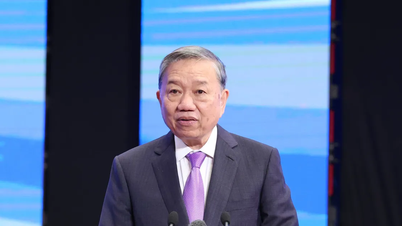

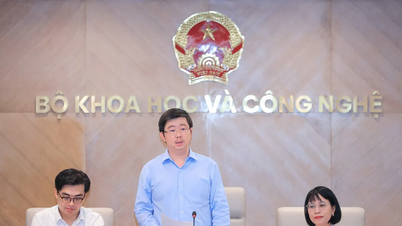



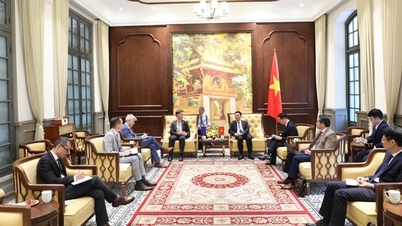
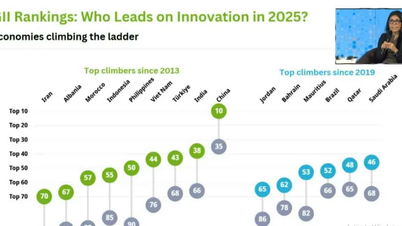
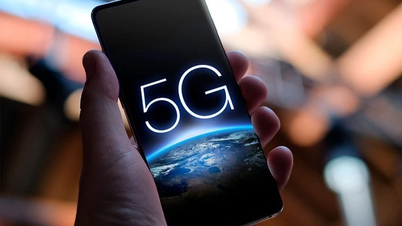

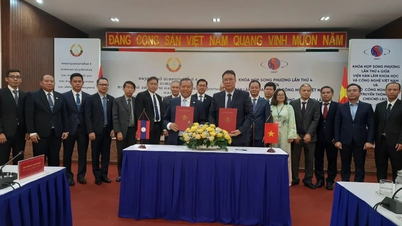

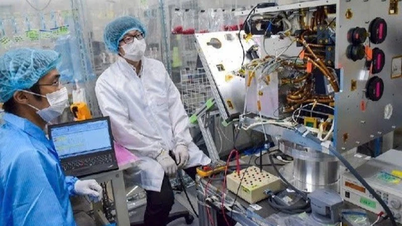


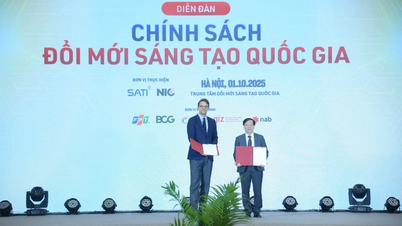




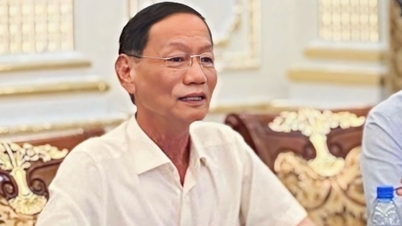


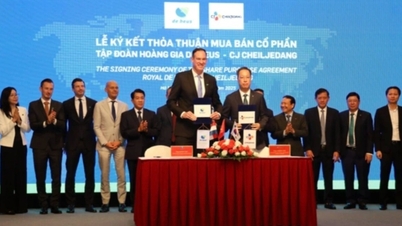
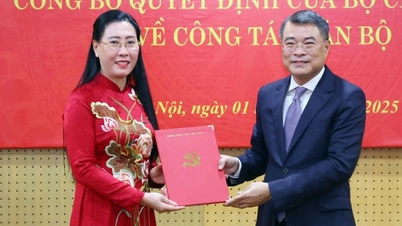































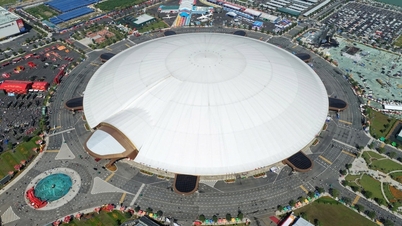




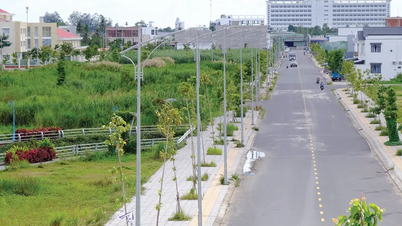

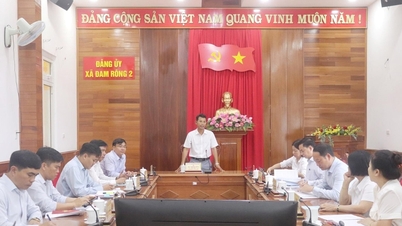

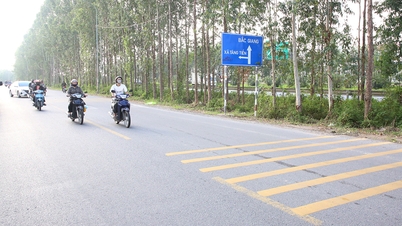

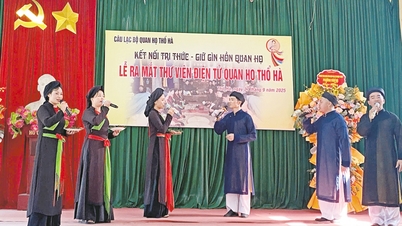
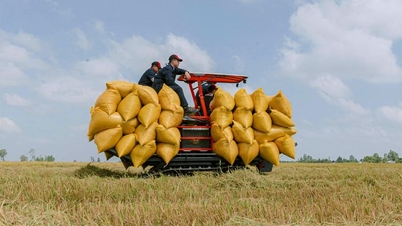

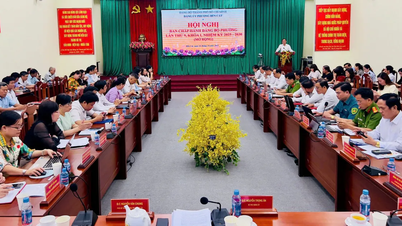














Comment (0)